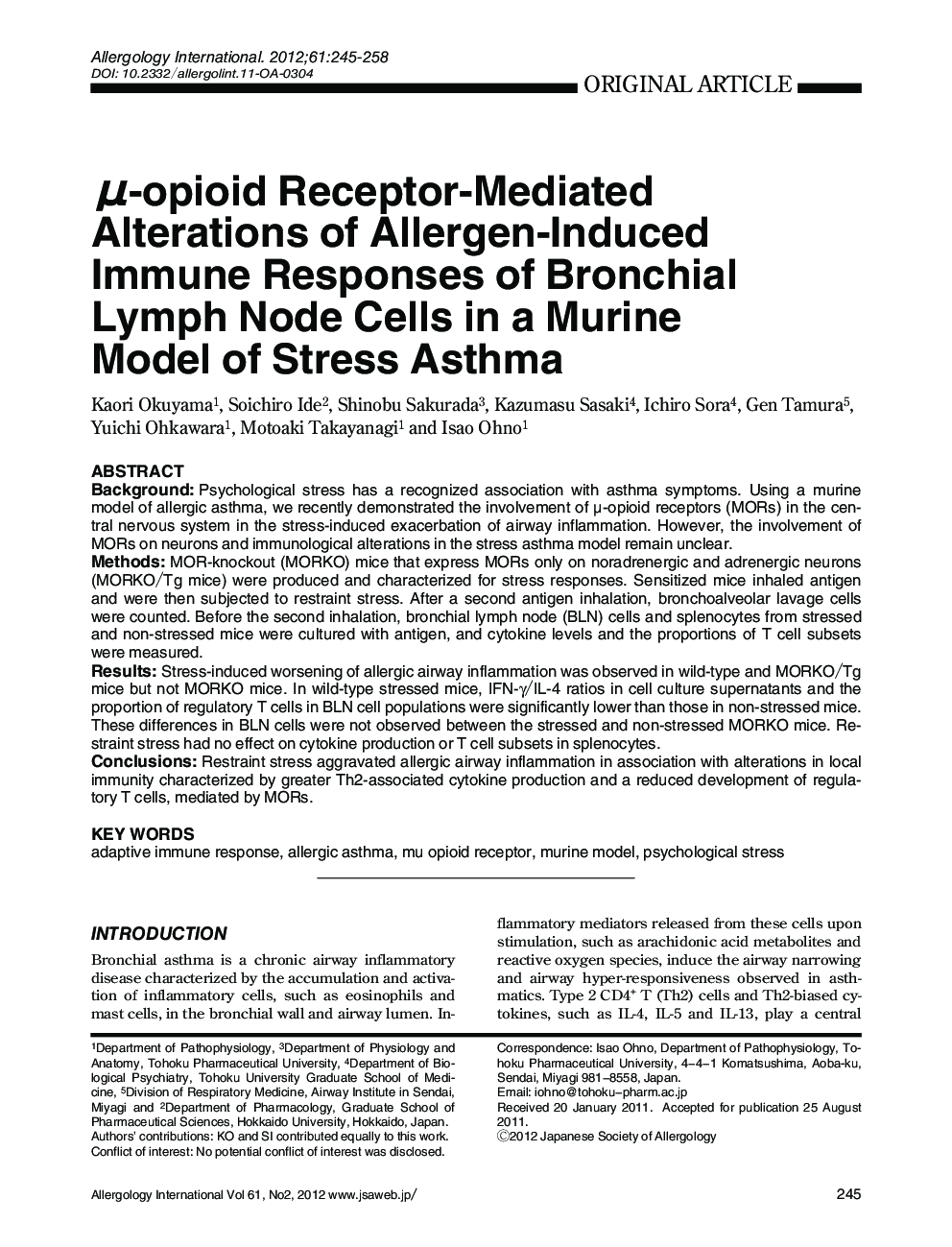| Article ID | Journal | Published Year | Pages | File Type |
|---|---|---|---|---|
| 3340726 | Allergology International | 2012 | 14 Pages |
ABSTRACTBackgroundPsychological stress has a recognized association with asthma symptoms. Using a murine model of allergic asthma, we recently demonstrated the involvement of μ-opioid receptors (MORs) in the central nervous system in the stress-induced exacerbation of airway inflammation. However, the involvement of MORs on neurons and immunological alterations in the stress asthma model remain unclear.MethodsMOR-knockout (MORKO) mice that express MORs only on noradrenergic and adrenergic neurons (MORKO/Tg mice) were produced and characterized for stress responses. Sensitized mice inhaled antigen and were then subjected to restraint stress. After a second antigen inhalation, bronchoalveolar lavage cells were counted. Before the second inhalation, bronchial lymph node (BLN) cells and splenocytes from stressed and non-stressed mice were cultured with antigen, and cytokine levels and the proportions of T cell subsets were measured.ResultsStress-induced worsening of allergic airway inflammation was observed in wild-type and MORKO/Tg mice but not MORKO mice. In wild-type stressed mice, IFN-γ/IL-4 ratios in cell culture supernatants and the proportion of regulatory T cells in BLN cell populations were significantly lower than those in non-stressed mice. These differences in BLN cells were not observed between the stressed and non-stressed MORKO mice. Restraint stress had no effect on cytokine production or T cell subsets in splenocytes.ConclusionsRestraint stress aggravated allergic airway inflammation in association with alterations in local immunity characterized by greater Th2-associated cytokine production and a reduced development of regulatory T cells, mediated by MORs.
